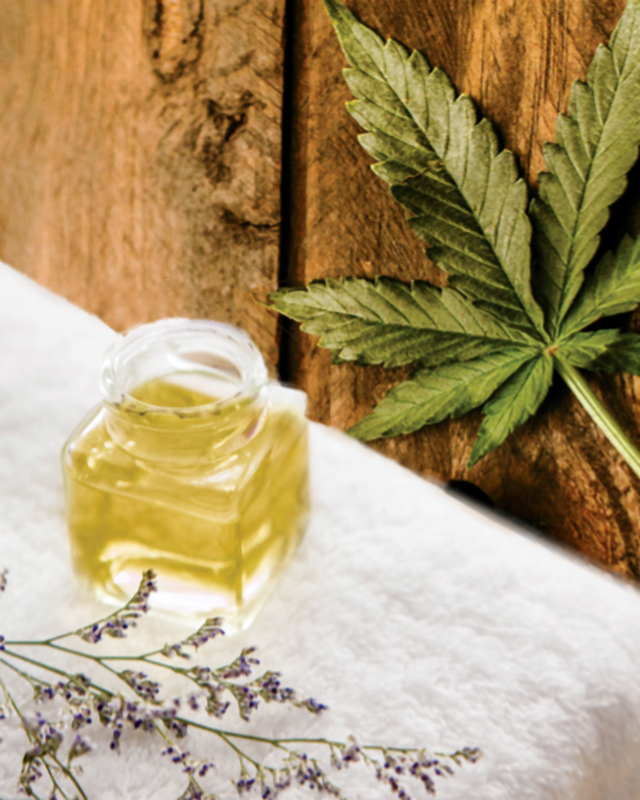By: Berlin Packaging Specialist
Date: January 29, 2020

Though most FDA guidelines for labeling and packaging hemp-based CBD products are just suggestions, labeling for marijuana-based CBD products is required. Labeling CBD products to meet FDA guidelines regardless of the extraction strain helps build brand-trust and promote the cannabis industry positively. If a manufacturer or producer only intends to sell their CBD-based products in State, following State regulations and laws for labeling CBD are enough. For out-of-State sales, CBD labeling requirements need to meet FDA standards.
Requirements for Front Labels
Proper labeling can help keep your CBD products out of the FDA’s radar, so you can focus on business and not costly warnings or citations. FDA guidelines include placing the following information on the front or display label of CBD products.
- Net weight of container or volume for liquid
- Quantity of tablets or capsules in the container
- Identification statement (Ex. Natures Light CBD Oil)
- Nutrient value of the main ingredient in MG per serving (Ex. 10 mg CBD Extract)
Nutrient claims made on front displays must match those made on the Supplement or Nutrition Facts Labels on the back of cannabis packaging containers.
Identify Content Ingredients Clearly
Content labels are generally placed on the back of daily supplements with CBD or any edibles that contain CBD. The two labeling requirements most used for cannabis-based products are Supplement Facts Labels (SFL) and Nutrition Facts Labels (NFL). The FDA requires that CBD products marketed as dietary supplements have SFLs. For herbal products that include all primary parts of the cannabis plant, include any other cannabinoids or plant extracts used as well. For example, aside from 15 mg Cannabidiol extract, a product may include 1 mg hemp seed oil or 2 mg lavender oil extract. Labeling other relevant herbal ingredients helps prevent CBD daily products like supplements from being classified as isolates. Serving sizes must also be listed on both SFLs and NFLs. For CBD-based food products, FDA NFL regulations may be necessary, to view FDA food and dietary supplement regulations click here.
Accurate Potency
There is an alarming trend of CBD-based product manufacturers and producers inaccurately depicting CBD percentages in products. One study found the percentages of CBD listed was either higher or lower than indicated on their containers. To promote brand trust, include Certificates of Authenticity (COA) with all CBD-based products that make potency percentage claims. COAs aren’t required by the FDA for hemp-based CBD products but they will help ease consumer concerns about inaccurate potency claims. Potency testing should be conducted by an independent third-party laboratory to get an accurate, unbiased result. Include COAs with each batch of product to verify both potency and purity standards for your cannabis-based products.
Focus on Benefits and Natural Sources
When adding information to the back label, focus on the natural ingredients or intended benefits instead of the fact that it’s CBD-based. Try to showcase your product as a natural health supplement with specific benefits. If you use organic ingredients or the product is gluten-free, add that information when space allows. Placing focus on all the ingredients and benefits gives your product more marketing potential and reduces the risk of FDA labeling issues. Additionally, CBD isolate products are prohibited at the Natural Products Expo, which means less exposure for dietary supplements that only promote CBD content.
The Don’t of Labeling CBD Products
While not all CBD-based products have set-in-stone FDA labeling requirements, that doesn’t mean you should take labeling lightly. There are still a few labeling issues that can land a company in hot water with the FDA when it comes to CBD products:
- Claiming that cannabis-related products like CBD supplements cure any diseases or health conditions.
- Adding expiration dates without relevant data that establishes the information isn’t false or misleading.
- Forgetting to put the manufacturer's or producer's address somewhere on the back label.
- Leaving out safe storage and warning information on CBD products.
When promoting the benefits of your product use phrases like “encourages restful sleep,” or “may help ease swelling associated with inflammatory health issues.” This type of phrasing lets consumers know the benefits without insinuating the product is a cure or standalone treatment for health conditions or diseases. Placing the company address on the back of your product increases consumer confidence in your brand, and gives them a point of contact. Drugs and dietary supplement labels should contain storage instructions that help maintain potency during storage and keep supplements out of the reach of children. Adding warnings and side effects information is helpful and indicates transparency.
Proper labeling shows consumers you are a knowledgeable producer or manufacturer of cannabis-based products like CBD supplements or oils. Adding recommended information and required SFL or NFL labels also helps keep your company in good standing with the FDA. Labeling correctly also helps promote the cannabis industry as a legitimate player in the health and wellness market.
